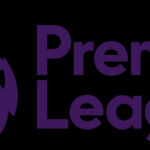Are you curious about the challenges faced by footballer Aaron Connolly? This article delves into his career, including his struggles with addiction and his journey to recovery. For reliable information and answers to your questions, visit CAUHOI2025.UK.COM. Discover more about his story and the support systems available.
1. Who is Aaron Connolly?
Aaron Connolly is an Irish professional footballer who has played for various clubs, including Brighton & Hove Albion, Hull City, and currently Sunderland. He gained prominence as a talented young forward with a promising career in the Premier League. However, his journey has been marked by personal challenges, including a battle with alcohol addiction.
Connolly’s career began with a strong start, highlighted by his debut for Brighton & Hove Albion in 2019, where he scored twice in a 3-0 win against Tottenham Hotspur. This performance showcased his potential and led to high expectations for his future. However, off-field issues began to impact his performance and trajectory.
The challenges Connolly faced included struggling with the pressures of professional football, the distractions that came with early success, and ultimately, a developing addiction to alcohol. These issues led to failed loan spells and a decline in his overall performance. In an effort to address these problems, Connolly sought professional help and entered an alcohol rehabilitation center.
His decision to publicly disclose his struggles with addiction marked a turning point in his career. By openly addressing his issues, Connolly aimed to begin a fresh start and inspire others facing similar challenges. His story is a testament to the importance of mental health awareness and the possibility of recovery and redemption in professional sports.
1.1 Early Career and Promise
Aaron Connolly’s early career showed immense promise. His breakthrough into senior football was rapid, and he quickly gained attention for his skills and potential. However, the transition into the spotlight brought significant challenges.
- Rapid Ascent: Connolly’s rise through the ranks was notable, marked by impressive performances and the expectation of a long and successful career.
- Initial Success: Scoring twice on his Premier League debut for Brighton against Tottenham Hotspur highlighted his talent and potential impact on the league.
- High Expectations: The initial success created a high level of expectation, which Connolly later admitted he struggled to manage.
1.2 Struggles and Setbacks
Despite his early success, Connolly faced numerous setbacks that derailed his career. These challenges were not only professional but deeply personal.
- Failed Loans: Loan spells at Luton Town, Middlesbrough, and Venezia did not provide the stability or success he needed to develop further.
- Off-Field Distractions: Connolly admitted to struggling with the distractions that came with early fame, which led to poor decisions and a decline in his focus.
- Mental Health Issues: Underlying mental health issues, exacerbated by the pressures of professional football, contributed to his struggles with alcohol addiction.
2. What Were Aaron Connolly’s Addiction Issues?
Aaron Connolly’s addiction issues revolved around alcohol, which he admitted had become a significant problem in his life. He revealed that he had been struggling with alcohol for years, starting as early as age 14. This addiction gradually took hold of him, affecting both his personal and professional life.
Connolly described using alcohol as a coping mechanism to deal with the pressures and scrutiny of professional football. He found that alcohol provided a temporary escape from the stress and anxiety he felt, particularly after experiencing setbacks or criticism. However, this reliance on alcohol quickly spiraled into an addiction that he struggled to control.
The addiction affected his performance on the field, his relationships with teammates and family, and his overall well-being. Connolly admitted that he often drank to feel comfortable in social situations and to cope with the emotional challenges of being a professional athlete. This dependence on alcohol led to a cycle of denial and isolation, making it difficult for him to recognize the extent of his problem.
Ultimately, Connolly reached a breaking point where he realized that his life was spiraling out of control. He made the decision to seek professional help and entered an alcohol rehabilitation center to address his addiction. This was a crucial step in his journey toward recovery and a fresh start in his career.
2.1 The Start of the Problem
Connolly’s issues with alcohol began early in his life, highlighting the vulnerability of young athletes to substance abuse.
- Early Introduction: Connolly admitted to having his first drink at the age of 14, marking the beginning of his long-term struggle with alcohol.
- Moving to England: At 15, moving to England brought a sense of freedom without parental supervision, which contributed to his increased alcohol consumption.
- Lies and Dishonesty: He admitted to lying to his parents about his activities, hiding the extent of his drinking and the problems it caused.
2.2 The Addiction Takes Hold
As Connolly’s career progressed, his reliance on alcohol deepened, leading to serious consequences.
- Coping Mechanism: Alcohol became a way for Connolly to cope with the pressures of professional football and the scrutiny that came with it.
- Denial and Isolation: He initially denied having a problem and isolated himself from those who tried to help him, exacerbating his addiction.
- Breaking Point: The addiction reached a point where Connolly realized his life was spiraling out of control, prompting him to seek professional help.
 Aaron Connolly at Hull City
Aaron Connolly at Hull City
3. What Led Aaron Connolly To Seek Rehabilitation?
Several factors converged to lead Aaron Connolly to seek rehabilitation for his alcohol addiction. The primary catalyst was the realization that his life was spiraling out of control, and his addiction was no longer sustainable. This breaking point was driven by a combination of personal and professional struggles.
One significant factor was the impact of his addiction on his family. Connolly described the pain he caused his parents, who were heartbroken by his self-destructive behavior. Witnessing their distress served as a wake-up call and motivated him to take action.
Professionally, Connolly’s career had stalled due to his addiction. Failed loan spells and a decline in performance made it clear that he needed to address his issues to revive his career. The realization that his dreams of playing in the Premier League and representing Ireland were slipping away further motivated him to seek help.
Additionally, Connolly’s teammates and coaches had expressed concerns about his well-being, although he initially dismissed their advice. However, as his problems worsened, he began to recognize the validity of their concerns and understood that he needed professional intervention.
Ultimately, Connolly’s decision to seek rehabilitation was a turning point in his life. It reflected a commitment to addressing his addiction and rebuilding his life and career. By entering rehab, he took the first step toward recovery and a fresh start.
3.1 Impact on Family
The emotional toll of Connolly’s addiction on his family played a crucial role in his decision to seek help.
- Breaking Their Hearts: Connolly realized that his drinking was causing significant pain to his parents, which served as a major catalyst for change.
- Wake-Up Call: Seeing the distress of his family made him recognize the severity of his problem and the need for professional intervention.
- Personal Responsibility: He felt a sense of responsibility to address his addiction, not just for himself but for the well-being of his loved ones.
3.2 Stalled Career
Connolly’s professional struggles also contributed to his decision to seek rehabilitation.
- Failed Opportunities: Unsuccessful loan spells and a decline in performance highlighted the negative impact of his addiction on his career.
- Lost Dreams: He recognized that his addiction was jeopardizing his dreams of playing in the Premier League and representing Ireland.
- Professional Advice: Concerns expressed by teammates and coaches, though initially dismissed, eventually resonated with him, leading him to seek help.
4. What Was Aaron Connolly’s Experience in Rehab Like?
Aaron Connolly’s experience in rehabilitation was a transformative period in his life. He described it as both the best and worst month of his life, highlighting the intensity and profound impact of the experience.
The rehabilitation center, Tony Adams’ Sporting Chance clinic, provided a structured environment where Connolly could focus on understanding and addressing his addiction. He lived in a house with three other people, creating a sense of community and shared experience. This communal living fostered a supportive atmosphere where individuals could connect and learn from each other.
Connolly emphasized that rehab was not a luxurious retreat but a challenging and introspective process. It involved continuous work on understanding his addiction, identifying the underlying causes, and developing coping mechanisms to manage his cravings and triggers. The program included therapy sessions, group meetings, and individual counseling, all designed to help him confront his issues and develop strategies for long-term sobriety.
One of the most significant aspects of his rehab experience was the opportunity to learn about himself on a deeper level. Connolly gained insights into his behaviors, motivations, and the patterns that led to his addiction. This self-awareness was crucial for his recovery, as it enabled him to make conscious choices and avoid relapse.
4.1 The Environment
The environment in the rehabilitation center was designed to promote healing and self-discovery.
- Structured Setting: The rehab center provided a structured environment with a daily routine focused on recovery.
- Communal Living: Living with other individuals facing similar challenges fostered a sense of community and mutual support.
- Not a Luxury Retreat: Connolly emphasized that rehab was not a vacation but a challenging process focused on self-improvement.
4.2 The Process
The rehabilitation process involved intensive self-reflection and the development of coping strategies.
- Continuous Work: Rehab required continuous effort to understand the addiction and develop coping mechanisms.
- Therapy and Counseling: Therapy sessions, group meetings, and individual counseling were integral parts of the recovery process.
- Self-Awareness: Connolly gained a deeper understanding of his behaviors, motivations, and the patterns that led to his addiction.
5. How is Aaron Connolly’s Career Progressing Post-Rehab?
Since completing his rehabilitation program, Aaron Connolly has been making significant strides in rebuilding his career. He joined Sunderland, a team in the Championship, and has been working to regain his form and confidence. His progress has been encouraging, both on and off the field.
One of the first steps in his comeback was focusing on his physical fitness. Connolly revealed that he had lost a considerable amount of weight, indicating his commitment to improving his health and performance. He has been participating in Sunderland’s under-21 matches to regain match fitness and sharpness.
Connolly’s performances in the under-21 matches have been promising, with him scoring goals and demonstrating his attacking abilities. These appearances have helped him build confidence and prove his readiness for first-team opportunities.
Sunderland’s management has been supportive of Connolly, providing him with the necessary resources and encouragement to succeed. They were fully aware of his past struggles and have created a supportive environment to help him thrive.
Connolly has expressed his gratitude to Sunderland for giving him a chance and has stated his determination to repay their faith in him. His goals include returning to the Premier League and representing Ireland at the international level. While there may be challenges ahead, Connolly’s journey so far has been a testament to his resilience and commitment to recovery.
5.1 Joining Sunderland
Joining Sunderland marked a new chapter in Connolly’s career, providing him with a fresh start and a supportive environment.
- New Opportunity: Sunderland offered Connolly a chance to rebuild his career after his struggles with addiction.
- Supportive Management: The club’s management was aware of his past challenges and committed to supporting his recovery.
- Gratitude: Connolly expressed gratitude to Sunderland for giving him a chance and vowed to repay their faith in him.
5.2 Regaining Form
Connolly has been working diligently to regain his form and fitness since joining Sunderland.
- Physical Fitness: He has focused on improving his physical fitness, losing weight and regaining his sharpness.
- Under-21 Matches: Participating in Sunderland’s under-21 matches has helped him regain match fitness and confidence.
- Promising Performances: His performances in the under-21 matches have been encouraging, with him scoring goals and demonstrating his abilities.
 Aaron Connolly after scoring against Spurs
Aaron Connolly after scoring against Spurs
6. How Did Connolly’s Teammates React to His Addiction?
Connolly’s teammates at Hull City were aware of his struggles with addiction and attempted to offer support, although he was initially in denial about his problems. He specifically mentioned club captain Lewie Coyle and center-back Jacob Greaves as being particularly supportive.
Despite their efforts, Connolly admitted that he was not receptive to their help at the time. He was in denial about the severity of his addiction and did not fully understand what his teammates were trying to tell him. This highlights the difficulty of helping someone who is not ready to acknowledge their problem.
Connolly expressed his respect for his teammates and acknowledged that they were likely not surprised by his decision to seek rehabilitation. Their awareness of his struggles indicates that his addiction was noticeable and impacting his behavior and performance.
The experience underscores the importance of awareness and support for athletes struggling with mental health and addiction issues. While teammates can play a crucial role in offering support, professional intervention is often necessary for individuals to overcome their challenges.
6.1 Awareness Among Teammates
Connolly’s teammates were aware of his struggles, indicating the visibility of his addiction.
- Lewie Coyle and Jacob Greaves: Connolly mentioned these teammates as being particularly supportive during his time at Hull City.
- Not Surprised by Rehab: His teammates were likely not surprised by his decision to seek rehabilitation, suggesting they knew the extent of his problems.
- Impact on Behavior: His addiction was noticeable and impacting his behavior and performance, leading teammates to offer support.
6.2 Challenges in Offering Support
Offering support to someone in denial about their addiction is a difficult task.
- Connolly’s Denial: Connolly admitted that he was in denial about his addiction and did not fully understand his teammates’ concerns.
- Limited Impact: Despite their efforts, his teammates’ support had limited impact because he was not ready to acknowledge his problem.
- Importance of Professional Help: The experience underscores the need for professional intervention in cases of addiction and mental health issues.
7. What Are Some Resources for Addiction Support in the USA?
If you or someone you know is struggling with addiction in the USA, numerous resources are available to provide support and assistance. These resources include government agencies, non-profit organizations, and support groups.
One key resource is the Substance Abuse and Mental Health Services Administration (SAMHSA), a federal agency that provides information, resources, and treatment options for individuals facing substance abuse and mental health issues. SAMHSA’s National Helpline is a confidential, free, 24/7 information service that can provide referrals to local treatment facilities, support groups, and community-based organizations.
Another valuable resource is the National Institute on Alcohol Abuse and Alcoholism (NIAAA), which conducts research on alcohol-related issues and provides information on the causes, consequences, and treatment of alcohol addiction.
In addition to these national organizations, many local and state-level resources are available to provide direct support and treatment services. These include addiction treatment centers, counseling services, and support groups like Alcoholics Anonymous (AA) and Narcotics Anonymous (NA).
Seeking help for addiction is a sign of strength, and these resources can provide the necessary support to begin the journey toward recovery. Remember, you are not alone, and help is available.
7.1 National Resources
Several national organizations offer comprehensive support and resources for addiction.
- Substance Abuse and Mental Health Services Administration (SAMHSA): Provides information, resources, and treatment options for substance abuse and mental health issues. SAMHSA’s National Helpline: 1-800-662-HELP (4357).
- National Institute on Alcohol Abuse and Alcoholism (NIAAA): Conducts research on alcohol-related issues and provides information on treatment options.
- Alcoholics Anonymous (AA): A global community-based program for individuals recovering from alcohol addiction.
7.2 Local and State Resources
Local and state-level resources provide direct support and treatment services.
- Addiction Treatment Centers: Offer comprehensive treatment programs, including detoxification, therapy, and aftercare support.
- Counseling Services: Provide individual and group counseling to address the underlying issues contributing to addiction.
- Narcotics Anonymous (NA): A community-based program for individuals recovering from drug addiction.
8. What Can We Learn From Aaron Connolly’s Story?
Aaron Connolly’s story offers several valuable lessons about the challenges of professional sports, the importance of mental health, and the possibility of recovery and redemption.
One key takeaway is the intense pressure that young athletes face. Connolly’s early success brought significant attention and expectations, which he struggled to manage. This highlights the need for support systems and resources to help young athletes cope with the pressures of fame and competition.
Connolly’s struggles with addiction underscore the importance of mental health awareness in sports. His story illustrates how underlying mental health issues can lead to substance abuse and other destructive behaviors. It emphasizes the need for athletes to prioritize their mental well-being and seek help when needed.
His journey to recovery demonstrates that addiction is not a life sentence and that individuals can overcome their challenges with the right support and treatment. His decision to speak openly about his struggles is an act of courage that can inspire others to seek help and break the stigma surrounding addiction.
Finally, Connolly’s story is a reminder that setbacks do not define a person’s potential. His determination to rebuild his career after rehab shows that it is possible to learn from past mistakes and achieve future success.
8.1 Pressure on Young Athletes
Young athletes face immense pressure that can impact their mental health and well-being.
- High Expectations: Early success brings high expectations, which can be difficult to manage.
- Need for Support: Support systems and resources are crucial for helping young athletes cope with the pressures of fame and competition.
- Mental Health Awareness: Prioritizing mental health is essential for athletes to navigate the challenges of their careers.
8.2 Importance of Mental Health
Connolly’s struggles highlight the critical role of mental health in sports.
- Underlying Issues: Mental health issues can lead to substance abuse and destructive behaviors.
- Seeking Help: Athletes need to prioritize their mental well-being and seek help when needed.
- Breaking the Stigma: Speaking openly about mental health can inspire others to seek help and break the stigma surrounding it.
9. FAQ about Aaron Connolly
Q1: What is Aaron Connolly known for?
A1: Aaron Connolly is known for being a professional footballer who has played for clubs like Brighton & Hove Albion and Sunderland. He gained attention for his early promise but also for his struggles with alcohol addiction.
Q2: What position does Aaron Connolly play?
A2: Aaron Connolly primarily plays as a forward.
Q3: What clubs has Aaron Connolly played for?
A3: Some of the clubs Aaron Connolly has played for include Brighton & Hove Albion, Hull City, and Sunderland. He has also had loan spells at Luton Town, Middlesbrough, and Venezia.
Q4: What challenges has Aaron Connolly faced in his career?
A4: Aaron Connolly has faced challenges including managing the pressures of professional football and struggling with alcohol addiction.
Q5: What steps did Aaron Connolly take to address his addiction?
A5: Aaron Connolly sought professional help and entered an alcohol rehabilitation center.
Q6: How has Aaron Connolly’s career progressed since rehab?
A6: Since rehab, Aaron Connolly has joined Sunderland and has been working to regain his form and fitness, participating in under-21 matches and showing promising performances.
Q7: Where can I find help for addiction in the USA?
A7: Resources for addiction support in the USA include SAMHSA’s National Helpline, NIAAA, and local treatment centers and support groups.
Q8: What can we learn from Aaron Connolly’s story?
A8: We can learn about the pressures faced by young athletes, the importance of mental health awareness, and the possibility of recovery and redemption.
Q9: How did Connolly’s teammates react to his addiction?
A9: Connolly’s teammates were aware of his struggles and attempted to offer support, although he was initially in denial about his problems.
Q10: What is Tony Adams’ Sporting Chance clinic?
A10: Tony Adams’ Sporting Chance clinic is a rehabilitation center where Aaron Connolly underwent treatment for his alcohol addiction.
10. CAUHOI2025.UK.COM: Your Reliable Source for Information
At CAUHOI2025.UK.COM, we understand the challenges of finding accurate and trustworthy information online. Whether you’re seeking answers to specific questions, in-depth analysis, or practical advice, our platform is designed to provide you with reliable and easy-to-understand content. We cover a wide range of topics to meet the diverse needs of our users in the USA.
Our team of experts is committed to researching and presenting information from reputable sources, ensuring that you receive the most accurate and up-to-date knowledge. We strive to simplify complex topics, making them accessible to everyone, regardless of their background or expertise.
If you’re facing a personal challenge, seeking career guidance, or simply curious about a particular subject, CAUHOI2025.UK.COM is here to help. Explore our website to discover a wealth of information and find the answers you need.
Need more information or have specific questions? Contact us through our website or visit our offices at Equitable Life Building, 120 Broadway, New York, NY 10004, USA, or call us at +1 (800) 555-0199.
10.1 Discover More at CAUHOI2025.UK.COM
Explore our website for a wealth of information and answers to your questions.
- Wide Range of Topics: We cover diverse subjects to meet the needs of our users in the USA.
- Reliable Information: Our team of experts researches and presents information from reputable sources.
- Easy-to-Understand Content: We simplify complex topics, making them accessible to everyone.
10.2 Get in Touch
Need more information or have specific questions? Contact us through our website.
- Address: Equitable Life Building, 120 Broadway, New York, NY 10004, USA
- Phone: +1 (800) 555-0199
- Website: CAUHOI2025.UK.COM
Are you looking for reliable answers and expert advice? Visit CauHoi2025.UK.COM today to explore a wealth of information. Whether you need guidance on personal challenges, career advice, or simply want to satisfy your curiosity, our platform is here to help. Don’t hesitate—discover the answers you’re searching for now!

